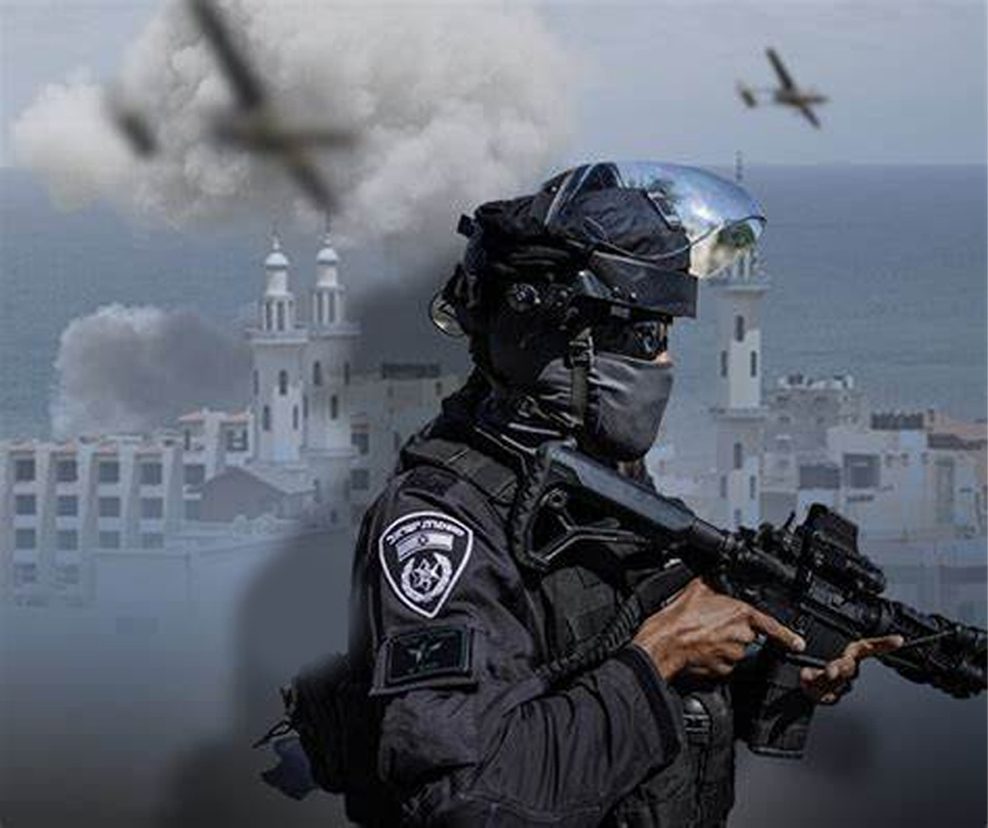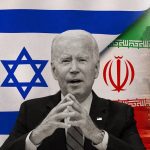The Israeli conflict in Gaza is on the brink of its tenth month, with Israel falling short of its “stated” goals to free Israeli hostages and eliminate Hamas. To achieve the latter, Israel has turned to a policy of assassination, focusing on leaders of Palestinian factions and resistance groups in Lebanon and Iraq. These actions are being marketed to the Israeli populace as successes of the security and intelligence sectors, whose credibility was undermined after their failure to foresee and prevent Operation Al-Aqsa Flood on October 7, 2023.
With the recent announcement of Ismail Haniyeh’s assassination, the head of the Hamas political bureau, in an Israeli raid in Tehran, and the earlier assassination of Fouad Shukr, Hezbollah’s second-in-command, Israel’s assassination policy has come back into focus. This article examines the assassination policy in Israeli security doctrine, analyzing its various instances and objectives, assessing its effectiveness, and discussing its legality in light of international law.
Assassination Defined
The term assassination policy describes a systematic and planned killing operation targeting key individuals who hold intellectual, political, military, or leadership sway. The motivations for such operations are often ideological, political, economic, or driven by a desire for revenge.
When it comes to its assassination policy, Israel has constructed justifications and defences to validate this immoral practice, positioning it within the context of self-defense and the fight against terrorism attributed to these key figures.
Israel defines assassination as the physical elimination carried out by its security forces against Palestinian and Arab leaders and fighters accused of participating in activities or operations against it. This term remained in use until 2000. To further legitimize the assassination policy and avoid the term “assassination,” which is deemed criminal under international law, Israel has, since 2000, adopted euphemisms such as “targeted thwarting” or “targeted killing.” These terms, introduced by former Vice President of the Supreme Court of Israel, Elyakim Rubinstein, serve to describe assassinations that have evolved into a core doctrine and primary tactic within the Israeli security strategy.
The term “targeted thwarting” was coined by Yuval Diskin, the former Director of the Israeli Internal Security Service, Shabak, who is credited with devising this strategy during the Second Intifada. This term gained traction in both media and official circles initially aimed at achieving specific objectives, but later evolved and solidified into a distinct theoretical framework.
History and Instances of Israeli Assassinations
Israeli history is replete with assassinations, some of which predate the declaration of the establishment of the Israeli occupation state in 1948. This policy has persisted since the onset of Jewish migration to Palestinian territories, evolving into a strategic necessity and an integral part of Israeli policy at specific times. It was tied to the Israeli military and political establishment, often encapsulated by the motto “Israel’s long arm,” symbolizing the country’s ability to act anywhere against adversaries.
Following the establishment of the Israeli state in 1948, assassinations were entrenched as a policy among Israeli leaders, many of whom were directly involved in them. Notable figures such as Yitzhak Shamir, Yitzhak Rabin, Ariel Sharon, Shimon Peres, and Menachem Begin were active members of Zionist groups like the Haganah, Irgun, and Stern.
Notably, the scope of these assassinations was not confined to Palestinians or Arabs alone; international figures were also targeted. For instance, Israel assassinated Count Folke Bernadotte in Jerusalem on September 17, 1948. Bernadotte, then serving as a United Nations Mediator for Palestine, had drafted a report for the UN Secretary-General that condemned Israel and held it accountable for the 1948 catastrophe.
Over time, the assassination policy evolved, granting the Israeli Prime Minister the authority to order assassinations unilaterally, without consultation or oversight from a parliamentary committee. This policy was exemplified in 1972 when Golda Meir made an official decision to target and assassinate those responsible for the Munich attack, orchestrated by the Black September group, an organization affiliated with Fatah, which had targeted Israeli athletes during the Olympics in Germany.
The policy of assassination evolved further with the onset of the Palestinian Intifada in 2000, becoming more systematic and publicly endorsed as a central component of Israeli security doctrine.
During the Second Intifada, assassination strategy evolved once more, with assassinations emerging as the preferred alternative to arrest operations. These assassinations were aimed at secondary figures and entities whose elimination yielded limited practical gains but effectively fostered a climate of intimidation and disruption. The resulting confusion within these groups was intended to shift their focus from initiating new attacks to regrouping and addressing internal issues
Goals of Israeli Assassinations
Israel portrays those targeted in assassination operations as terrorists or collaborators with terrorist organizations. Thus, it is allegedly carrying out these assassinations in order to accomplish a number of goals, the most important of which are:
- Revenge, bolstering deterrence, and demonstrating that its reach can extend to strike adversaries globally
- Boosting the morale of Israeli citizens during periods of crisis
- Undermining the strength of these organizations by keeping them preoccupied with leadership succession and internal unity, thus delaying their offensive actions.
- Weakening the effectiveness of faction leaders by keeping them under constant pressure and compelling them to adopt stringent security measures that curtail their freedom of movement and communication, ultimately reducing their efficiency and impact.
Effectiveness of Assassinations
The Israeli assassination policy sparks debate over its effectiveness, even within Israel. Journalist and military analyst Alon Ben David argues that this approach often backfires, escalating violence and failing to eradicate what Israel labels as terrorism. He contends that while assassinations may remove individual targets, they are swiftly replaced by new figures, perpetuating the cycle of conflict. In the most optimal scenario, the targeted organization may experience a temporary period of disarray if the target is a key figure whose presence is crucial to its operation. However, this chaos is often short-lived, as the organization may eventually rebound, potentially emerging stronger and more cohesive. The following cases serve to substantiate this argument:
- Following the assassination of Abbas al-Musawi, the former Secretary-General of Hezbollah, the organization evolved into one of Israel’s most formidable adversaries. Alon Ben David highlighted this transformation, noting that the killing of Musawi and the rise of Nasrallah turned the party from a small group into a well-structured army.
- The 1996 assassination of Yahya Ayyash did not diminish the Al-Qassam Brigades’ military strength, but it did incite a wave of retaliatory attacks by the factions. These revenge operations resulted in the deaths of 60 Israelis and injuries to hundreds more. Additionally, Ayyash’s assassination reignited the pattern of martyrdom operations, which had been dormant for about a year prior.
- Likewise, the assassinations of key Hamas figures like Ismail Abu Shanab, Abdel Aziz al-Rantisi, and Sheikh Ahmed Yassin did not dismantle the movement’s political leadership. Instead, these killings enhanced Hamas’s standing in Palestine, playing a role in its success in the 2006 elections and reinforcing its dominance over the Gaza Strip in 2007.
- The assassination of Abu Ali Mustafa, General Secretary of the Popular Front for the Liberation of Palestine, on August 27, 2001, prompted the Front’s members to plot the assassination of Rehavam Ze’evi, then Israel’s Minister of Tourism.
On the flip side, Israel’s assassination policy damages its image on the international stage due to the collateral damage it inflicts, which impacts civilian lives.
Legality of Assassinations
Extrajudicial killings, or assassinations conducted without legal authorization, are deemed criminal acts under international regulations and agreements, as detailed in:
- Article (3) of the 1948 Universal Declaration of Human Rights, which states that “Everyone has the right to life, liberty and security of person.”
- Article (6) of the 1966 International Covenant on Civil and Political Rights, which states that “Every human being has the inherent right to life. This right shall be protected by law. No one shall be arbitrarily deprived of his life.”
- The 1949 Fourth Geneva Convention on the Protection of Civilian Persons in Time of War, the Fourth Hague Convention on the Laws and Customs of War on Land and its annex, along with numerous other international agreements, which explicitly prohibit assassination due to its significant threat to both national and international security and peace, as well as its profound impact in causing societal anxiety and disruption.
Therefore, international law forbids any form of extrajudicial killing (assassinations) that occurs outside the judicial system, where individuals are deprived of their right to a proper defense and awareness of the charges they face. These regulations are applicable to those under national governments or occupation. International law also provides the option to seek justice through the International Criminal Court, which addresses severe breaches, including war crimes, crimes of aggression, and other violations that undermine state stability and threaten global peace.
Despite this international and humanitarian legal prohibition against assassination, Israel legalized this policy in 2002, establishing a global first under the guise of self-defense and counter-terrorism, while outlining a set of controls. Yet, these were often disregarded and were subject to the approval of the prime minister, allowing for the use of alleged assassination operations to further personal agendas rather than serving the interests of the state.
In conclusion, the recent assassination operations represent a facet of Israel’s broader strategy to secure a ‘perceived’ victory. They aim to boost the morale of the Israeli public, who are discontented with the security and intelligence services for their failure to anticipate the events of October 7, 2023.
Israel’s assassination policy employed in its conflict with Gaza, exemplified by the recent targeting of Ismail Haniyeh, arguably amounts to a war crime. It adds to the growing list of war crimes committed by Israel since the onset of its aggression against Gaza. This policy flagrantly violates international legal principles and the United Nations Charter, while also significantly jeopardizing the security and stability of the Middle East. It appears that Israel will continue to adopt assassination as a strategy moving forward, with no signs of abandoning this practice.













